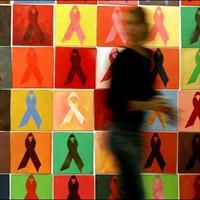MALAWI: Government proposes mandatory HIV test for pregnant women

Malawi's government is planning to table a controversial bill in Parliament which would require pregnant women to undergo HIV testing. The move is aimed at reducing mother-to-child transmission of HIV, but opponents of the proposed bill argue it would violate women's rights.
Malawi's current policy is to routinely test the approximately 500,000 pregnant women who attend antenatal clinics annually, unless they specifically ask not to be. However, according to Dr Mary Shawa, principal secretary for nutrition and HIV/AIDS, by October 2007 only about 162,000 pregnant mothers had been tested for HIV; 13 percent of them were positive.
Without intervention, the risk of an HIV-positive pregnant woman passing on the virus to her baby is between 30 percent and 35 percent, according to health specialists. Miriam Chipimo, reproductive health and HIV/AIDS manager for UNICEF Malawi, told IRIN/PlusNews that only slightly more than half of the 19,120 pregnant women who tested positive for HIV in Malawi in 2006 received preventative treatment.
Malawi recently switched from a single dose nevirapine regimen to the more effective and WHO-recommended triple combination of antiretroviral therapy drugs to prevent mother-to-child HIV transmission, however Chipimo noted that only 28 percent of the 544 clinics that provide maternal services in Malawi were offering PMTCT (prevention of mother-to-child) services by September this year. The government hopes to roll out the programme to all clinics by the end of 2008.
Shawa said that a law requiring pregnant women to test for HIV would only be put in place after consulting with all stakeholders on the issue.
The government has already surveyed Malawians from throughout the country to determine their views on mandatory testing. According to Shawa, many respondents were opposed to the idea, but she could not provide details.
"The bill will be discussed at cabinet level and then we will be telling the nation everything about the findings," she said.
Izeduwa Derex-Briggs, HIV/AIDS specialist with the United Nations Population Fund (UNFPA), said if the law was passed, it would infringe on the rights of Malawian women. "Such a law would be discriminatory. Why should it target women and not men?" she said.
Seodi White, national coordinator for Women and Law in Southern Africa (Wilsa), a group that advocates for women's rights and empowerment, said the proposed bill was unfortunate and retrogressive as it implied women were to blame for transmitting the disease.
"The bill is stigmatising women and Malawi cannot afford to pass such a bill into a law," White said.
Aaron Sangala, Malawi's deputy minister of women and child development, said that government would debate the human rights issues surrounding HIV testing when the bill was tabled in parliament early in 2008.
 Back and Next - Back and Next
Back and Next - Back and Next See Also - See Also
See Also - See Also